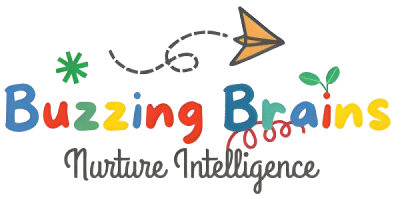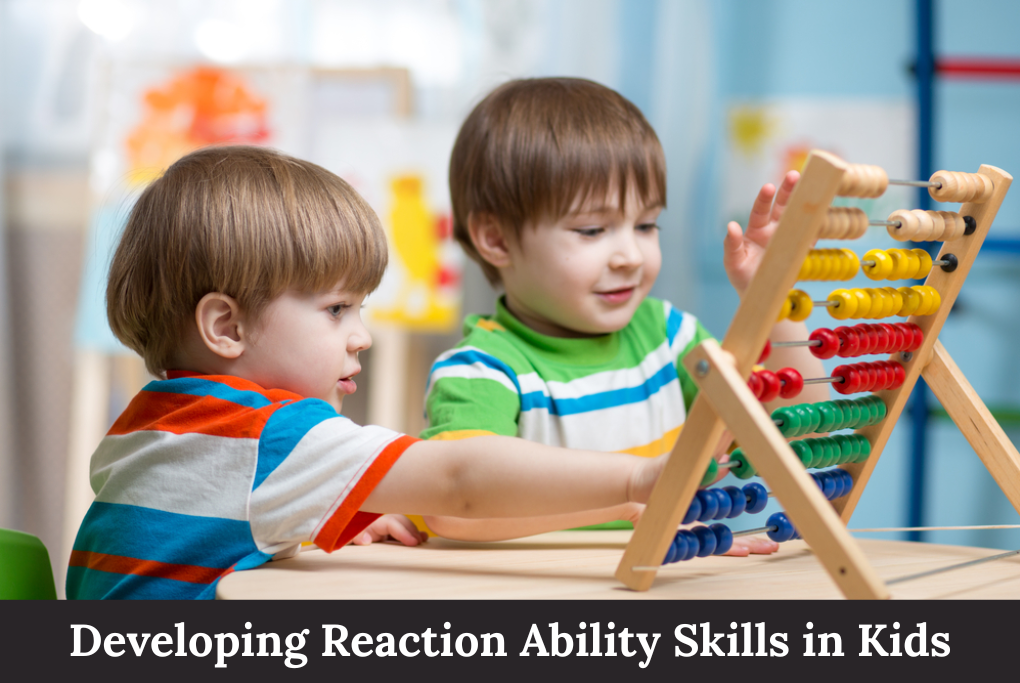As a parent, you want your child to grow into a healthy, confident, and capable individual. One crucial aspect of childhood development is reaction ability skills, which enable kids to respond quickly and effectively to various stimuli. In this article, we’ll explore the importance of developing reaction ability skills in kids, the repercussions of not having developed these skills, and provide tips and strategies for parents to improve reaction ability skills in their children.
What are Reaction Ability Skills?
Reaction ability skills refer to the ability to respond quickly and effectively to various stimuli, such as visual, auditory, or tactile cues. These skills involve the brain’s ability to process information and react accordingly, and are essential for physical activities, sports, and everyday life.
Why is it Important to Develop Reaction Ability Skills?
Developing reaction ability skills is crucial for kids’ physical development, academic success, and everyday life. Here are some reasons why:
Improved Physical Performance: Reaction ability skills are essential for physical activities, sports, and games, enabling kids to respond quickly and effectively to various stimuli.
Enhanced Cognitive Development: Reaction ability skills involve cognitive processing, which can help improve kids’ attention, focus, and decision-making abilities.
Better Safety and Awareness: Reaction ability skills can help kids respond quickly and effectively to potential dangers, such as avoiding obstacles or reacting to emergencies.
Increased Confidence: Mastering reaction ability skills can boost kids’ confidence and self-esteem, enabling them to tackle new challenges with greater ease.
Repercussions of Not Having Developed Reaction Ability Skills
If kids don’t develop reaction ability skills, they may face several challenges, including:
Difficulty with Physical Activities: Kids who struggle with reaction ability skills may find it challenging to participate in physical activities, sports, and games.
Poor Cognitive Development: Reaction ability skills involve cognitive processing, which can impact kids’ attention, focus, and decision-making abilities.
Increased Risk of Accidents: Kids who struggle with reaction ability skills may be more likely to be involved in accidents or injuries.
Effects of a Lack of Reaction Ability Skills in Different Age Groups
The effects of a lack of reaction ability skills can vary depending on the age group:
- 2-5 years: Kids in this age group may struggle with basic reaction ability skills, such as responding to simple commands or reacting to visual cues.
- 5-10 years: Kids in this age group may find it challenging to develop more complex reaction ability skills, such as reacting to multiple stimuli or making quick decisions.
- 10+ years: Kids in this age group may struggle with advanced reaction ability skills, such as reacting to complex situations or making strategic decisions.
Games, Puzzles, and Activities to Improve Reaction Ability Skills
Here are some games, puzzles, and activities that can help improve reaction ability skills in kids:
Reaction Games: Games that require kids to react quickly to visual or auditory cues, such as “Simon Says” or “Red Light, Green Light”.
Obstacle Courses: Obstacle courses that require kids to react quickly and navigate through challenges.
Ball Games: Ball games that require kids to react quickly to catch or hit balls.
– Sensory Play: Sensory play activities that challenge kids to react to different textures, sounds, or smells.
Strategies to Improve Reaction Ability Skills in Children
Here are some strategies to improve reaction ability skills in kids:
Practice Regularly: Encourage kids to practice reaction ability skills regularly, using games and activities that promote skill-building.
Make it Fun: Make reaction ability skill development fun and engaging, using games and activities that kids enjoy.
Provide Opportunities for Practice: Provide opportunities for kids to practice reaction ability skills, such as playing reaction games or participating in sports.
– Be a Role Model: Be a role model for reaction ability skill development, engaging in activities with your kid and promoting a healthy, active lifestyle.
Tips for Parents
Here are some tips for parents to help improve reaction ability skills in their kids:
Encourage Physical Activity: Encourage kids to engage in physical activities, sports, and games that promote reaction ability skill development.
Provide a Safe Environment: Provide a safe environment that allows kids to practice reaction ability skills without fear of injury or harm.
Be Patient: Be patient and supportive, recognizing that reaction ability skill development can take time and practice.
Make it a Family Affair: Make reaction ability skill development a family affair, engaging in activities with your kid and promoting a healthy, active lifestyle.
Additional Tips for Parents
Here are some additional tips for parents to help improve reaction ability skills in their kids:
Use Real-Life Examples: Use real-life examples to help kids develop reaction ability skills, such as reacting to traffic signals or warning signs.
Encourage Active Play: Encourage kids to engage in active play, such as running, jumping, and playing sports, which can help improve reaction ability skills.
Provide Feedback: Provide feedback to kids on their performance, helping them to identify areas for improvement and develop strategies for improvement.
Make it Challenging: Make activities challenging for kids, gradually increasing the difficulty level as they develop their reaction ability skills.
Common Challenges and Solutions
Here are some common challenges that parents may face when trying to improve reaction ability skills in their kids, along with some potential solutions:
Lack of Motivation: Encourage kids to find activities that they enjoy, and provide positive reinforcement and support.
Limited Access to Resources: Look for free or low-cost resources in your community, such as parks or playgrounds, that can support reaction ability skill development.
Physical Limitations: Consult with a healthcare professional or physical therapist to develop a plan that meets your kid’s needs and abilities.
The Importance of Early Intervention
Early intervention is critical for kids who are struggling with reaction ability skills. Research shows that kids who receive early intervention and support are more likely to develop the skills they need to succeed in school and beyond.
Conclusion
Reaction ability skills are essential for kids’ physical development, academic success, and everyday life. By providing opportunities for practice, making it fun, and being a positive role model, parents can help their kids develop the reaction ability skills they need to succeed.

